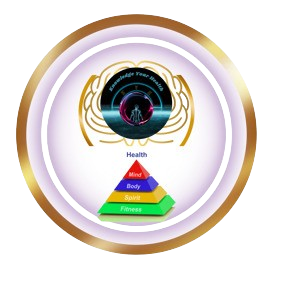Vitamin B2 (Riboflavin) Overview
Vitamin B2, also known as riboflavin, is a water-soluble vitamin that plays an essential role in various bodily functions. It is a part of the B-vitamin family and is crucial for maintaining overall health and well-being. Riboflavin is involved in numerous metabolic processes and is particularly important for energy production, cell function, and the metabolism of fats, carbohydrates, and proteins.
Health Benefits of Vitamin B2
1. Energy Production: Riboflavin is essential for converting carbohydrates, fats, and proteins from food into energy that the body can use. It helps produce ATP (adenosine triphosphate), the primary energy currency of cells.
2. Cell Function and Growth: Vitamin B2 is vital for maintaining healthy cells, supporting cell function, growth, and development. It plays a role in DNA synthesis and repair, protein synthesis, and cellular respiration.
3. Eye Health: Riboflavin plays a role in maintaining healthy eyes and supporting vision. It is essential for the health of the cornea, the transparent front part of the eye, and may help reduce the risk of cataracts.
4. Skin and Hair Health: Vitamin B2 supports skin and hair health by promoting cell turnover and supporting the repair and maintenance of tissues. It may help maintain healthy skin, nails, and hair.
Diseases and Conditions Benefited by Vitamin B2
1. Ariboflavinosis: Severe Vitamin B2 deficiency can lead to ariboflavinosis, a condition characterised by sore throat, redness and swelling of the lining of the mouth and throat, cracks or sores on the lips, and inflammation and scaling of the skin.
2. Eye Disorders: Some research suggests that Vitamin B2 may help reduce the risk of certain eye disorders, including cataracts and glaucoma.
3. Migraine Headaches: Preliminary studies have shown that high-dose riboflavin supplementation may help reduce the frequency and severity of migraine headaches in some individuals.
4. Anaemia: Riboflavin deficiency can contribute to anaemia, a condition characterised by reduced red blood cell production and symptoms like fatigue, weakness, and shortness of breath.
Recommended Dosage of Vitamin B2
The recommended daily allowance (RDA) for Vitamin B2 varies depending on age, gender, and life stage:
- Infants (0-6 months): 0.3 mg (milligrams)
- Infants (7-12 months): 0.4 mg
- Children (1-3 years): 0.5 mg
- Children (4-8 years): 0.6 mg
- Children (9-13 years): 0.9 mg
- Teens (14-18 years): 1.3 mg for females, 1.6 mg for males
- Adults (19 years and older): 1.1 mg for females, 1.3 mg for males
Food Sources of Vitamin B2
1. Dairy Products: Milk, yogurt, and cheese are excellent sources of Vitamin B2.
2. Meat and Poultry: Lean meats like chicken, turkey, and beef contain riboflavin.
3. Fish and Seafood: Salmon, mackerel, and trout are good sources of Vitamin B2.
4. Eggs: Both the yolk and the white of the egg contain riboflavin.
5. Leafy Green Vegetables: Spinach, kale, and broccoli are rich in Vitamin B2.
Tips for Maximising Vitamin B2 Absorption:
Cooking Methods: Riboflavin is stable when exposed to heat but can be lost in water. Steaming, boiling, and microwaving are cooking methods that help preserve riboflavin content in foods.
Dietary Diversity: Incorporating a variety of Vitamin B2-rich foods into your diet can help ensure you’re getting enough of this essential nutrient.
In conclusion, Vitamin B2 (riboflavin) is a vital nutrient that plays a crucial role in energy production, cell function and growth, eye health, and skin and hair health. By incorporating Vitamin B2-rich foods into your diet and following the recommended dosage guidelines, you can maintain optimal riboflavin levels and support your overall health and well-being. Always consult with a healthcare professional before starting any supplementation regimen to ensure it’s appropriate for your individual needs.
